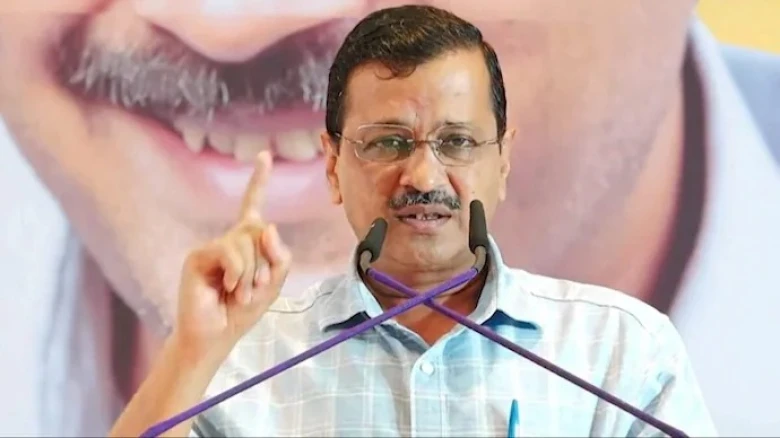Sports

Responding with a no, Singhvi said, "The writ petition has been filed challenging the arrest."
Digital Desk: In the excise policy case, the Supreme Court on Monday questioned Delhi Chief Minister Arvind Kejriwal on why he hasn't yet filed a bail plea contesting his arrest.
Asking senior advocate Abhishek Manu Singhvi whether Kejriwal had made a bail request to the trial court, a panel of Justices Sanjiv Khanna and Dipankar Datta made inquiries.
Responding with a no, Singhvi said, "The writ petition has been filed challenging the arrest."
As part of a money laundering investigation related to the now-canceled Delhi liquor policy, Kejriwal was taken into custody by the Enforcement Directorate (ED) on March 21. His judicial custody will last till May 7 as he is being held at Tihar Jail as of April 1.
Singhvi stated, "There are no documents that connect him," during the hearing. Until the day of his arrest, he is not an accused. In the midst of an election season, the arrest was made with motive. Additionally, it occurs particularly soon after the Model Code of Conduct and the general election schedule were announced."
"What was the novel material? Or has something unexpected turned out that links him to the crime? Just because someone is called doesn't mean they're instantly accused," he added.
He stated, "At first, none of the individuals who subsequently accused him (Kejriwal) had given him a name. Only the conflicting and extremely delayed confessions of co-accused—such as Raghav Magunda Reddy, Sarath Reddy, Butchi Babu, and Srinivasalu Reddy—who have since changed their minds—are the basis for this arrest."
Singhvi claimed that despite the fact that the Enforcement Directorate (ED) possessed these statements and materials for the past nine months, the arrest was made unlawfully during the Lok Sabha election campaign.
"All of these approvers have never even met Kejriwal, and their claims are based only on rumors. These belated comments were made in exchange for bail reduction and case exoneration, he continued.
"Either there is material on guilt, or there is material that is imminent, or there is some basis that we don't know about." A prisoner provided the sixteenth statement. He became an approver after receiving bail. His claim serves as the foundation. The announcement was made in July of last year. In March, they took Kejriwal into custody. Though I don't claim the Chief Minister is immune, does he have fewer rights?," Singhvi asked further questions.
Then he added, "You don't treat a Chief Minister like this. Nothing had been done since September. Suddenly though, they took him into custody. He is not a terrorist or a serious criminal who plans to flee by taking a plane."
Singhvi's arguments led the bench to again question why no bail plea was never applied.
Singhvi stated, "I agree I didn't apply for protection from arrest earlier. It's okay for me to make mistakes in the law. The day Kejriwal did not receive relief from the Delhi High Court, he was taken into custody. Arrest warrants should be based on guilt rather than the fact that the person failed to get protection."
The Supreme Court further questioned Kejriwal's move to skip over the ED summons in the liquor policy matter.
Singhvi commented on this, saying, "Just because someone is called doesn't mean they're immediately charged. I had replied in written."
Tuesday's hearing will proceed since it ended without a decision.
Kejriwal was contesting his arrest in the excise policy matter, and the Supreme Court was hearing his plea.
The Delhi High Court declared on April 9 that there was nothing illegal about the Chief Minister's arrest.
A one-judge court led by Justice Swarna Kanta based its decision on the prima facie, claiming that there was sufficient evidence, such as approvers' declarations, intermediaries' involvement, and references to money given for expenses related to the 2022 Goa assembly elections.
Just a few days before the general elections, on March 21, Kejriwal said that the decision to raid and arrest him was a well-planned plan to shift the odds in favoru of the BJP.
Leave A Comment